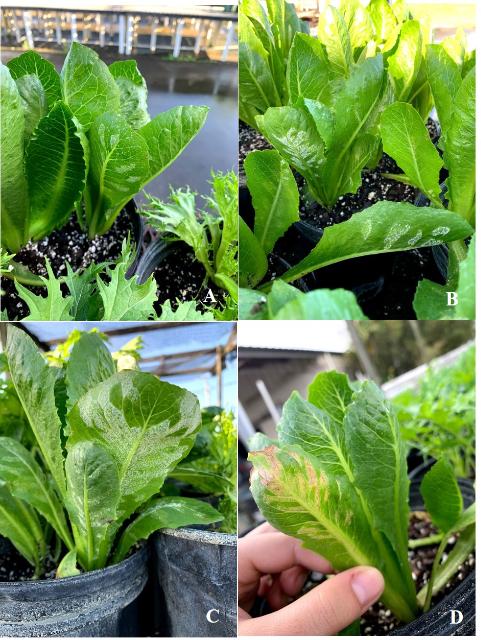Richard Raid, a professor in plant pathology at the University of Florida Institute of Food and Agricultural Sciences (UF/IFAS), advises lettuce growers that downy mildew disease was found last week in the Everglades Agricultural Area.
Downy mildew is a foliar disease of lettuce that impacts the crop’s yield and quality. In addition to losses in the field, downy mildew’s impact is accompanied by significant postharvest losses. In Florida, yield losses of up to 100% have been reported for individual fields.
If downy mildew is known to be present in the area, growers should launch a fungicide program immediately. The list of fungicides currently labeled for lettuce downy mildew control includes maneb, fosetyl, metalaxyl and several copper compounds. Some newer compounds including Presidio, Previcur Flex, Reason, Revus, and Tanos were recently added to growers’ control options.

Credit: Lis Natali Rodrigues Porto, UF/IFAS
Resistance in B. lactucae to the fungicide metalaxyl has been reported in Florida, and its efficacy may be reduced. Since labels and recommendations change frequently, growers should consult UF/IFAS recommendations for currently labeled fungicides for downy mildew control in Florida.
Fungicide applications should begin at the 1- or 2-leaf stage and continue throughout the duration of the crop. Applications must be made prior to infection if adequate control is to be maintained.
Symptoms of downy mildew appear initially as chlorotic yellow spots on the upper leaf surface. Under favorable conditions, a white cottony-like fungal growth may be seen on the lower leaf surface.
During the early stages, leaf spots are often delineated by the veins of the leaf, giving an angular appearance. Lesions become increasingly chlorotic and eventually turn brown. Although downy mildew is most severe on the older outer leaves, the disease may become systemic over time, infecting heads internally. Lesions may also provide entry for secondary fungi such as Botrytis.
Prevention and early detection are of the utmost importance. Because of downy mildew’s ability to spread over large distances in a short period of time, lettuce producers are urged to communicate with each other and with Extension personnel and consultants in the area.
Growers and scouts are asked to notify Raid at rnraid@ufl.edu if they find downy mildew in their fields.










